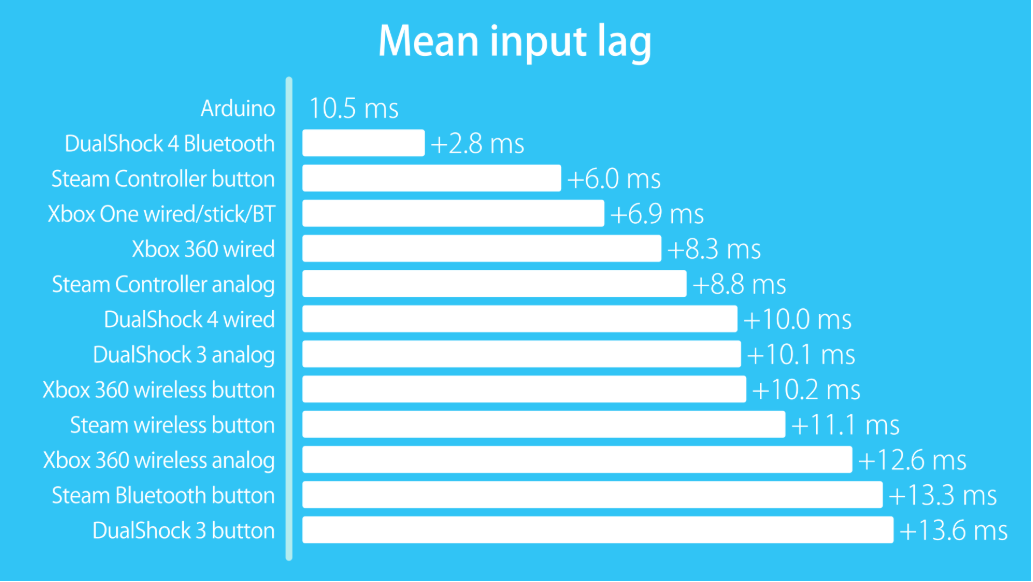Yeah I get that in super competitive environments that's meaningful but the fact is for most of us our reaction times have been going down hill for several years and for some several decades, the 200ms figure is pretty unreachable for all but like athletes if you're over 21.
I think often these laggy setups have firm triple figure latencies, with the say 50ms of a bad TV, on top of 33.3ms of the frame render time at 30fps, on top of say 25ms for a bad wireless controller and so on.
High bluetooth polling rates are just to make up for the inherently higher "flight time" of each packet/button press though, you're still looking at about 1 frames worth of additional latency from a DS4 over bluetooth, and that's obviously the best case scenario(The Rocket League community is actually a really exhaustive source of data for this kind of stuff):

I think often these laggy setups have firm triple figure latencies, with the say 50ms of a bad TV, on top of 33.3ms of the frame render time at 30fps, on top of say 25ms for a bad wireless controller and so on.
High bluetooth polling rates are just to make up for the inherently higher "flight time" of each packet/button press though, you're still looking at about 1 frames worth of additional latency from a DS4 over bluetooth, and that's obviously the best case scenario(The Rocket League community is actually a really exhaustive source of data for this kind of stuff):

Last edited:
